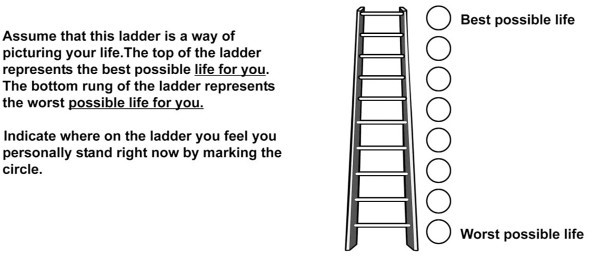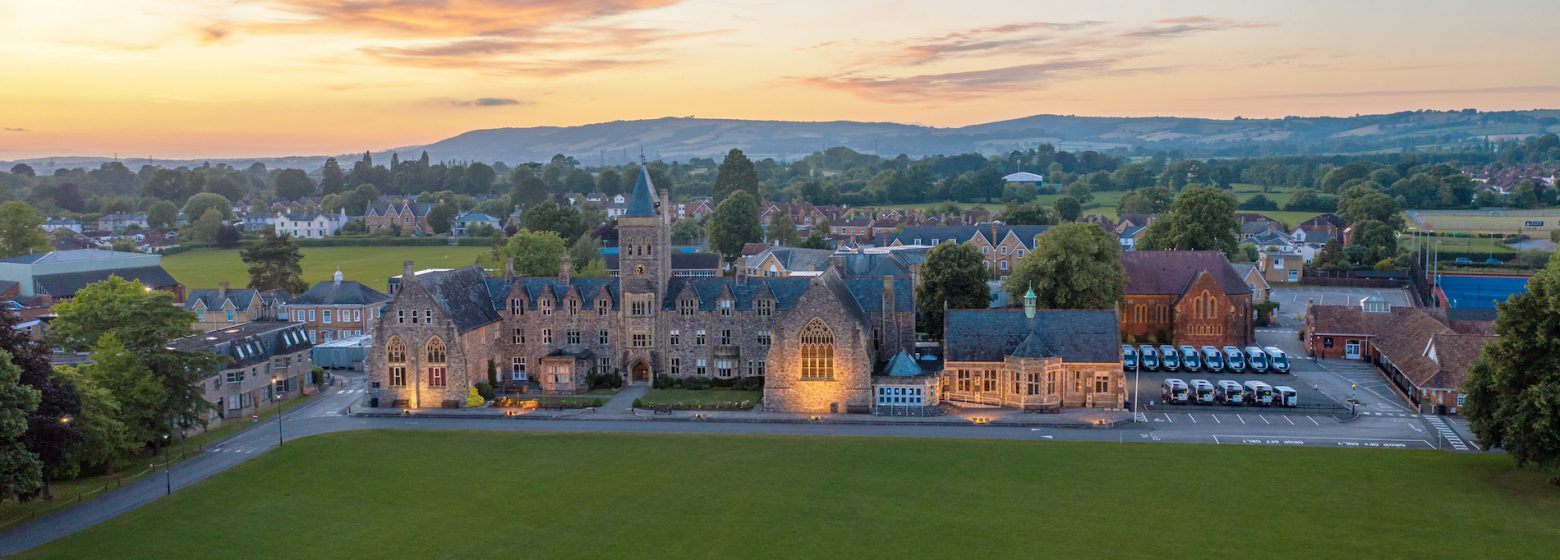On Saturday, at the Academic Scholars’ meeting, Mrs Coomber gave a fascinating talk on happiness. To begin, the students were asked what makes us happy, and answers ranged from food, friends to being snuggled up by the fire under a blanket.
The World Happiness Report is a measure of happiness involving 157 countries, with rankings based on their levels of happiness. Happiness is defined as: “the state of being happy”. But how can it really and tangibly be measured? Again, we gave a range of answers, with levels of suicide being perhaps the most dispiriting suggestion from the audience. In reality, the UN uses a combination of three factors. Firstly, the Cantril Ladder (see diagram below) uncovers the subjective side of happiness. Although we all completed the Ladder, the results may not have been very accurate as it was 8.30 on a Saturday monring! Secondly, various factors such as GDP, health, life expectancy, corruption and other social aspects make up 75% of the total score. Finally, the results are compared to Dystopia, an imaginary country where all inhabitants are miserable, which allows all real countries to remain positive on the scale.
It was found that Denmark is the happiest country, with a score of 7.526 out of 10, closely followed by all the other Scandinavian countries. Perhaps a surprising result given the fact that daylight hours in these particular countries are limited! The UK was 23rd on the list, 10 places behind the USA. However, this may quickly change after Brexit and the US presidential election!
The question on all of our minds was: Why Denmark? How do they get so happy? Well, it starts with a concept called Hygge (pronounced hue-gah), which is all about appreciating the little things in life. An average of 33 working hours a week also helps, but there is now even a theory that the Danish have a special gene that allows them to be happier – the Happy Gene!
On the other hand, Burundi is the unhappy country with a score of 2.905. This is due to civil wars, political uncertainty, high levels of corruption and a very low GDP of $900 per capita when compared to nearly $42,000 in the UK.
What is this data used for? It is used by countries to help formulate policies for making lives better. Ministers of Happiness have been appointed in 4 countries, including Ecuador, whose happiness score has increased by 0.966 out of 10 from 2015 to 2016, raising it from 99th place to 54th.
So, what did I learn from this talk? I found the geographical aspect of happiness (such as the effects of average life expectancy and literacy) extremely interesting, especially as someone who knows very little about Geography. Finally, I was reminded that happiness is not something that you have or you do not have. It is important to do the small things that lift your mood even if only a little bit, as they could make all the difference.
By Anna Glaser, Y13 Academic Scholar






